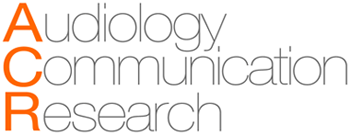ABSTRACT
Introduction
Knowledge about effective vocal techniques will contributes to the prevention/treatment of work-related voice disorder.
Purpose
Verifying acoustic vocal, auditory-perceptive and videolaryngostroboscopic measures in dysphonic teachers of two groups before and after a brief and intensive therapy program with finger kazoo technique, comparing to their control groups, and comparing the study groups between themselves.
Methods
Randomized study, pre-test and post-test, with control group, blind to the evaluator. Two study groups, with and without structural laryngeal affection (24 dysphonic teachers) performed15 sessions of a brief and intensive care with finger kazoo over three weeks and they were compared to two control groups (17 dysphonic teachers), who did not do therapy, in a total of 41 subjects. We carried out vocal acoustic analysis (Multi-Dimensional Voice Program Advanced), perceptual analysis (by three speech therapists) and videolaryngostroboscopy analysis (by three otolaryngologists) to compare the results obtained by each group.
Results
Significant reduction in harmonic-noise ratio in the study group with alteration after therapy was observed. In the comparison between the study group without affection with the respective control, there was a significant decrease in jitter, shimmer and voiceless segments in favor of the study group. It was also observed a significant reduction in dysphonia, hoarseness, breathiness and tension levels, as well as a lower incidence of triangular slit - level II - and higher amplitude of vibration of the vocal folds in the study group with alteration.
Conclusion
The brief and intensive care with finger kazoo provided voice, glottal closure and amplitude of mucosal wave vibration of the vocal folds improvements in dysphonic teachers with and without structural alterations of the vocal folds, especially in teachers without structural alterations.
Voice; Larynx; Voice quality; Voice training; Voice disorders; Dysphonia; Acoustics; Faculty; Occupational health

